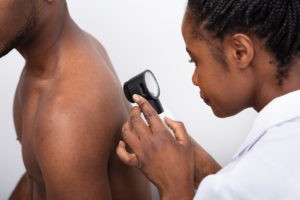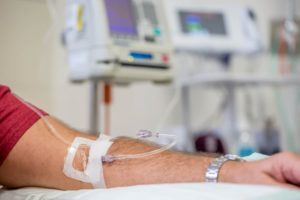
RCCA physicians in South Jersey discuss melanoma
Share on facebook Share on twitter Share on linkedin Share on email Share on print The New Jersey average of 22.2 new cases of melanoma
HIPAA Alert: Potential Data Breach Learn More
Questions on Oncology, Hematology and/or Infusion Clinical Services due to COVID-19 Crisis – CALL 833-698-1623
Important Information for Our Patients Regarding the Coronavirus.
RCCA Providing Area Cancer Patients with Access to Care During Coronavirus Outbreak
RCCA Offering Patients Virtual Visits During Coronavirus Pandemic
East Coast residents are no strangers to winter weather, and those long, chilly months tend to make time under the summer sun that much more appealing. But there’s a catch – too much exposure to the sun’s harmful ultraviolet (UV) rays can take a serious toll on skin health.
The majority of solar radiation is made up of visible and infrared light, making it relatively harmless. However, solar radiation also contains a small fraction of UV radiation that poses a risk to humans. In fact, the American Cancer Society says that 90 percent of non-melanoma skin cancers are linked to UV radiation. But how exactly does this radiation lead to cancer?

When exposed for extended periods of time, the DNA in your skin cells can become damaged by UV rays, leading to genetic mutations. Once these defects occur, they can cause malignant tumors that spread throughout the body.
How to Protect Yourself from UV Radiation
The adverse effects of UV radiation might make you think twice about enjoying the summer weather, but with a bit of caution, you can keep yourself safe when venturing outside. Next time you’re packing for a beach escape or a backyard barbecue, follow these recommendations from our dermatologic oncologists:
Reach Out to RCCA
If you believe you may be at risk for skin cancer, consult with your primary doctor. Upon a positive diagnosis, seek a referral for a dermatologist or a dermatological oncologist. Seasoned dermatological experts, like Aileen L. Chen, MD and Charanjeev Kapoor, MD, will be able to develop a treatment plan that addresses your unique situation.
For more information or to schedule an appointment,
call 844-346-7222. You can also schedule an appointment by calling the RCCA location nearest you.

Share on facebook Share on twitter Share on linkedin Share on email Share on print The New Jersey average of 22.2 new cases of melanoma

If you or a loved one has been diagnosed with cancer, doctors can choose from many treatments to provide the best care possible for each

Regional Cancer Care Associates is one of fewer than 200 medical practices in the country selected to participate in the Oncology Care Model (OCM); a recent Medicare initiative aimed at improving care coordination and access to and quality of care for Medicare beneficiaries undergoing chemotherapy treatment.